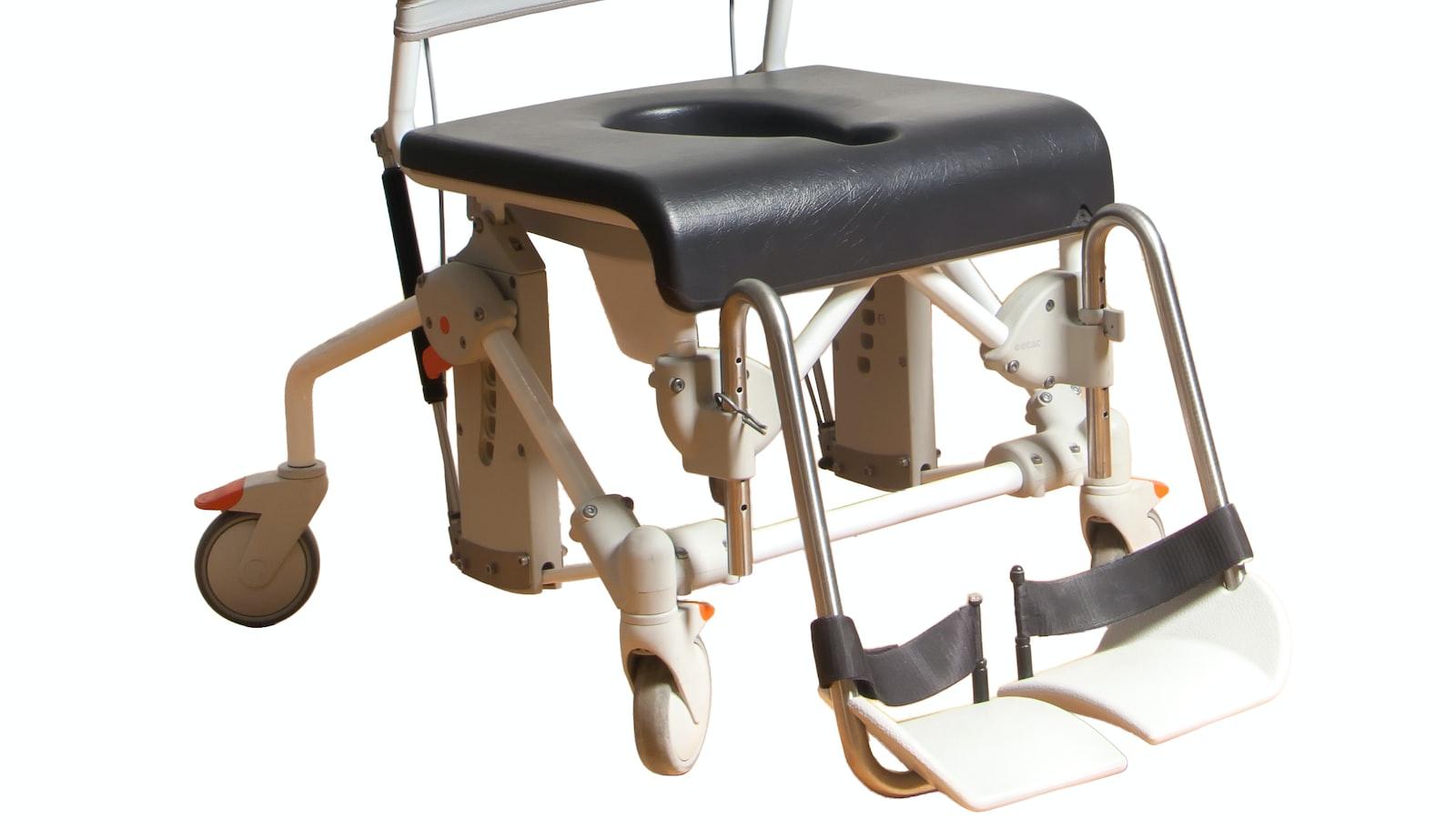Can paraplegics have babies? This is an important question for many couples who are considering having children while living with a condition such as paraplegia. Paraplegia is a medical condition that affects the lower half of the body, causing paralysis in the legs and lower torso. Fortunately, with advances in medical technology and support systems, it is possible for people with paraplegia to have children. In this article, we will look at what having a baby as a paraplegic entails and explore the options available to couples considering this decision.Yes, paraplegics can become parents. Many paraplegics have successfully adopted children or have become pregnant through assisted reproductive technology (ART). Some paraplegics also choose to use a surrogate mother to carry their biological child. Whatever path they choose, it is possible for paraplegics to become parents.
Is It Possible For Paraplegics To Have Biological Children?
Yes, it is possible for paraplegics to have biological children. However, this largely depends on the individual’s case. For example, some paraplegics may have physical limitations that prevent them from having intercourse or carrying a pregnancy. Other paraplegics may be able to have reproductive organs that are still functioning, allowing them to conceive naturally.
In cases where the paraplegic has a physical limitation preventing natural conception, assisted reproductive technology can be used. This includes in-vitro fertilization (IVF) and artificial insemination. In these cases, the egg or sperm of the individual can be collected and fertilized in a laboratory setting before being implanted into the uterus of a surrogate mother or an egg donor.
For those who are considering having children as a paraplegic, it is important to speak with a doctor about their specific case and any potential risks associated with conceiving. Additionally, it is important to understand any emotional challenges that may come with parenting as a paraplegic and seek out support resources if needed.
Overall, while there may be some physical limitations for those who are paraplegic when it comes to conceiving naturally, there are still various options available for having biological children such as assisted reproductive technology or surrogacy. It is important to talk with your healthcare provider to determine which option is best for you and your family.
Conceiving While Paraplegic
Conceiving a child is often a difficult process for any couple, but for paraplegics the challenge can be even greater. Paraplegics face a variety of physical and emotional obstacles when trying to conceive in addition to the normal struggles that come with infertility. They may experience limited mobility, reduced sensation, and possible complications with their reproductive organs that can make conceiving more difficult. Additionally, paraplegics may have to consider the implications of raising a child while being physically disabled.
Limited Mobility
Paralyzed individuals are unable to move certain body parts due to nerve damage or muscle loss. This can limit their ability to engage in sexual activities, as many positions may be uncomfortable or impossible due to their physical limitations. This lack of mobility can also impede reproductive functions such as orgasm and ejaculation which are necessary for conception.
Reduced Sensation
Paraplegics often experience reduced sensitivity in certain areas due to nerve damage or muscle spasms. This decreased sensation can make it difficult for them to experience pleasure during sex, which can lead to difficulty achieving orgasm and ejaculation. Additionally, some paraplegics may have difficulty feeling the sensations that indicate ovulation or fertilization has occurred, making it more difficult for them to identify when these events have taken place.
Reproductive Complications
Paraplegics may also experience reproductive complications due to their condition. They may suffer from issues such as erectile dysfunction, premature ejaculation, or an inability to produce sperm or eggs due to hormonal imbalances caused by their paralysis. These issues can make it more difficult for paraplegics to conceive naturally and may require medical intervention such as medication or surgery in order for them to become pregnant.
Raising a Child While Disabled
Finally, paraplegics must consider how their disability will affect their ability to raise a child. They may need assistance with everyday tasks such as feeding or bathing the baby that they would normally be able to do on their own if they were not paralyzed. Additionally, some parents with disabilities worry about how their child will view them and if they will be able to provide enough support and guidance without becoming overwhelmed by the demands of parenting while disabled.
Overall, although conceiving while paralyzed can be challenging, many couples are able manage any obstacles they face and go on to have successful pregnancies and healthy babies without medical intervention. With proper planning and support from family and friends, paraplegics are capable of fulfilling the dream of becoming parents despite any physical limitations they might have.
Assisted Reproductive Technologies For Paraplegic Couples
Assisted reproductive technologies (ART) are a form of medical intervention that helps couples with infertility issues to conceive a child. This technology has helped many couples get pregnant and have their own children, but what about paraplegic couples? Can they get access to these technologies and if so, how?
One of the most common assisted reproductive techniques used for paraplegic couples is in vitro fertilization (IVF). This procedure involves taking eggs from the female partner and fertilizing them in a laboratory setting with sperm from the male partner. The fertilized eggs can then be implanted into the uterus of the female partner, allowing her to carry a pregnancy to term. The success rate of this procedure depends on several factors including age, health status, and quality of eggs and sperm.
In some cases, artificial insemination may also be an option for paraplegic couples. In this procedure, sperm is directly injected into the female partner’s uterus using a syringe or catheter. Artificial insemination is less expensive than IVF and has a higher success rate when compared to natural conception. However, it does require more frequent office visits and is not recommended for those with certain health conditions or fertility issues.
Surrogacy is another option for paraplegic couples who want to have children but cannot conceive naturally due to their disability. In this process, a surrogate mother carries the pregnancy on behalf of the couple, allowing them to experience parenthood without having to go through labor and delivery themselves. The surrogate mother can either be a family member or friend, or she can be hired through an agency or fertility clinic.
Finally, adoption is always an option for paraplegic couples who want children but cannot conceive naturally due to their disability. Adoption can provide them with an opportunity to become parents without having to go through any fertility treatments or labor and delivery processes. It also allows them to give a home and family life to children in need who might otherwise never have one.
Overall, assisted reproductive technologies offer many options for paraplegic couples who want children but cannot conceive naturally due to their disability. Whether they decide on IVF, artificial insemination, surrogacy or adoption – there are many possibilities available that can help bring joy into their lives by giving them the opportunity of parenthood!
How Does Paraplegia Affect Male Fertility?
Paraplegia is a condition caused by a spinal cord injury, which can lead to partial or complete paralysis of the lower body. It can be caused by trauma, such as a car accident or fall, or by a disease such as multiple sclerosis. While it affects mobility and sensation, it can also affect male fertility.
The main way that paraplegia can affect male fertility is through changes to the reproductive system. Men with paraplegia may experience problems with erectile dysfunction due to nerve damage in the area of the spine that supplies nerves to the penis. This means that they may not be able to achieve or maintain an erection. Additionally, damage to the nerves in the pelvic area can impair ejaculation and reduce sperm count and motility, making it more difficult for a man with paraplegia to conceive a child naturally.
In addition to physiological issues, psychological factors may also come into play when it comes to male fertility and paraplegia. Men with paraplegia may feel less masculine due to their disability and this can lead to anxiety or depression which can further impair sexual performance and cause difficulty in conceiving naturally.
However, there are treatments available for men with paraplegia who wish to become fathers. In cases where erectile dysfunction is an issue, medications such as Viagra or Cialis can help improve erections and make intercourse possible. If nerve damage has affected ejaculation or sperm count/motility, doctors may recommend assisted reproductive techniques such as intrauterine insemination (IUI) or in vitro fertilization (IVF). Additionally, counseling is available for those suffering from psychological issues related to their disability that could be impacting fertility.
Overall, while paraplegia does have an effect on male fertility, there are treatments available that allow men with this condition to become fathers if they so desire. With medical assistance and support from family and friends, having a child is possible even if you have been affected by paraplegia.

Paraplegia and Female Fertility
Paraplegia is a condition in which an individual experiences partial or complete loss of function in their lower body. It can be caused by a variety of conditions, such as spinal cord injuries, diseases, or birth defects. For women, paraplegia can have a significant impact on fertility.
The primary effect of paraplegia on female fertility is the inability to achieve a successful pregnancy. This is due to the impaired functioning of the reproductive system that often accompanies paralysis. In some cases, paraplegic women may experience difficulty becoming pregnant due to reduced ovulation and menstrual irregularities. In other cases, it may be impossible for them to conceive because the reproductive organs are affected by paralysis.
In addition to these physical challenges, paraplegic women may face psychological barriers as well. Some women with paralysis may experience feelings of hopelessness or anxiety due to their altered body image and decreased fertility. These emotional issues can make it difficult for them to conceive even when their physical health is not an obstacle.
Fortunately, there are treatments available that may allow paraplegic women to become pregnant despite their condition. Assisted reproductive technology (ART) has been used successfully in many cases to help paralyzed women become pregnant and carry a child to term. ART involves using drugs or other medical interventions to stimulate ovulation or artificially inseminate the woman’s eggs with sperm from her partner or donor sperm samples.
In some cases, artificial reproductive techniques such as in vitro fertilization (IVF) may also be used in conjunction with ART procedures. IVF involves harvesting eggs from the woman’s ovaries and then combining them with sperm from her partner or donor samples in a laboratory setting before implanting them into her uterus through surgery.
Although these treatments can often be successful in helping paralyzed women conceive children, they are not without risks and complications. Paraplegic women who undergo ART and IVF procedures are at risk for developing multiple pregnancies, which often come with higher risks for both mother and baby than single pregnancies do. Additionally, IVF carries its own set of risks that include infection and ovarian hyperstimulation syndrome (OHSS). Therefore it is important for prospective mothers to carefully consider all possible options before undergoing any type of assisted reproductive procedure.
Overall, while paraplegia can have a significant impact on female fertility, there are treatments available that can help paralyzed women become pregnant and carry healthy babies to term with proper medical care and support from family and friends
Risks Involved In Pregnancy And Delivery For Paraplegic Mothers
Pregnancy and delivery are always associated with some risks, but for paraplegic mothers, the risks are even greater. Paraplegia is a condition where a person has lost the ability to move their lower body and often requires the use of a wheelchair. This can make it difficult for paraplegic mothers to receive adequate prenatal care and prepare for delivery. As a result, there is an increased risk for complications during pregnancy and delivery.
One of the main risks associated with pregnancy and delivery for paraplegic mothers is preterm labor. Women who are paralyzed in their lower body may have difficulty controlling their bladder or bowel muscles. This can lead to premature contractions which can lead to preterm labor and birth. Additionally, paraplegic women may experience difficulty controlling their blood pressure or breathing, both of which can cause complications during labor and delivery.
Another potential risk for pregnant paraplegics is poor nutrition due to limited mobility or lack of access to healthy food options. Poor nutrition during pregnancy can lead to complications such as low birth weight babies or birth defects. Furthermore, due to limited mobility, paraplegic women may be at an increased risk of developing gestational diabetes which can cause further health problems for both mother and baby.
Finally, there is an increased risk of infection during pregnancy and delivery for paraplegic mothers due to their inability to move around as much as other pregnant women can. This immobility increases the likelihood of developing pressure sores or other skin infections that may put the mother at risk of having sepsis during labor or delivery.
Overall, there are many risks associated with pregnancy and delivery for paraplegic mothers that should be taken into consideration when planning a pregnancy or preparing for childbirth. It is important that these women receive adequate prenatal care in order to reduce these risks as much as possible and ensure a safe and successful delivery.
Increased Risk Of Complications During Pregnancy And Delivery For Paraplegic Women
Pregnancy and delivery involve a significant amount of risk regardless of the woman’s physical condition. For paraplegic women, however, the risks associated with pregnancy and delivery may be even greater. Due to the reduced mobility and other physical limitations associated with paraplegia, these women may be at a higher risk for complications during pregnancy and delivery.
The most common complication faced by paraplegic women is an increased risk of preterm birth or premature labor. Paraplegic women may also be more likely to have preeclampsia, gestational diabetes, or anemia during pregnancy. In addition, the physical limitations associated with paraplegia can make it more difficult for these women to manage their labor and delivery process.
Many paraplegic women require additional medical support during pregnancy and delivery. This includes extra monitoring of the fetus, as well as specialized care from obstetricians who are familiar with managing the unique needs of a pregnant paraplegic woman. In addition, some paraplegic women may need to use specialized equipment such as ambulation aids or wheelchairs during their pregnancies in order to manage their mobility needs.
Paraplegic women may also be at a higher risk for postpartum complications such as postpartum depression or infections due to their limited mobility. It is important for these women to receive regular follow-up care from both their obstetrician and primary care physician in order to ensure that any potential complications are detected early on and treated promptly.
Overall, although there is an increased risk of complications during pregnancy and delivery for paraplegic women, there are many strategies that can be used in order to minimize the risks involved. With proper medical care and support throughout pregnancy and delivery, many paraplegic women can have successful pregnancies and deliveries without any major issues arising.

Conclusion
In summary, paraplegics can have babies if they have not had any complications with their pregnancy or any other medical condition. Although there may be some additional risks to consider, it is possible for paraplegics to give birth to healthy children. With the right medical care and support, paraplegics can safely have a baby and experience the joy of parenthood.
It is important to remember that having a baby is a personal choice and should not be taken lightly. Before making this decision, it is essential for paraplegics to consider all the potential risks involved and consult with their health care provider before deciding whether pregnancy is an option. With proper planning and support, paraplegics can have a safe and successful pregnancy and enjoy parenthood as much as anyone else would.
Ultimately, the decision of whether or not to have a baby should come down to personal preference. For those who do choose to embark on this journey, they can rest assured that with proper medical care, support from family and friends, and plenty of preparation beforehand, paraplegics can give birth to healthy babies just like anyone else would.




